Sleep plays a crucial role in both mental and physical health. A balanced diet not only provides essential nutrients but also helps improve sleep quality, especially for individuals struggling with insomnia. Below are some sleep-supporting foods that can enhance your overall health and help you achieve a better night’s sleep.
1. Whole Grains
Whole grains such as oats, flax seeds, and wheat are excellent sources of magnesium and tryptophan, both of which help promote better sleep. Tryptophan is an amino acid that stimulates the brain to produce serotonin, a neurotransmitter that improves sleep quality. Magnesium helps relax muscles, supports the nervous system, and reduces stress. Additionally, whole grains help regulate cortisol levels—the stress hormone—making it easier to fall asleep.
2. Honey
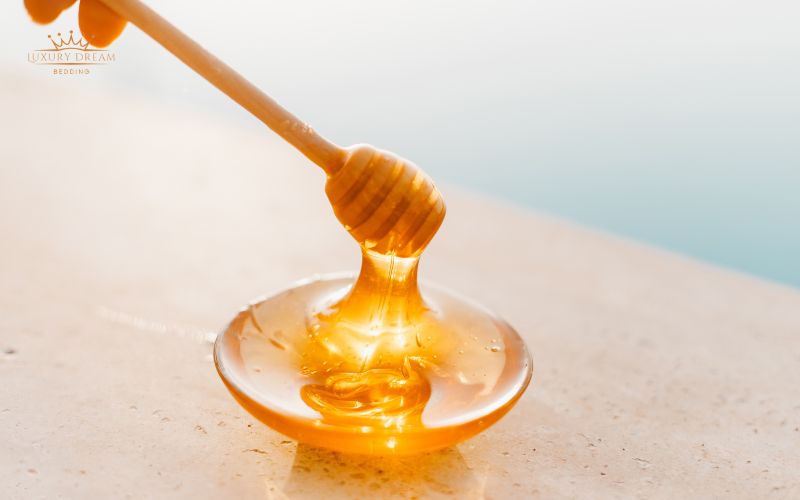
Honey is not only a natural ingredient great for skincare but also a powerful sleep aid. It helps stimulate the brain to release tryptophan, a hormone that calms the body and encourages sleep. Honey is rich in B vitamins, magnesium, and potassium, which are essential minerals for relaxing the nervous system. Moreover, it boosts insulin levels in the bloodstream, facilitating the absorption of tryptophan.
Tip: You can mix honey with warm water or add it to herbal tea before bed for an enhanced sleep experience.
3. Bananas
Bananas make for an ideal bedtime snack, either eaten whole or blended into a smoothie. This sleep-friendly food is packed with magnesium and potassium, which help relax muscles and reduce bodily tension. Bananas also contain tryptophan, which boosts serotonin production and promotes better sleep. They can also prevent muscle cramps that often wake you up in the middle of the night.
4. Vietnamese Water Dropwort
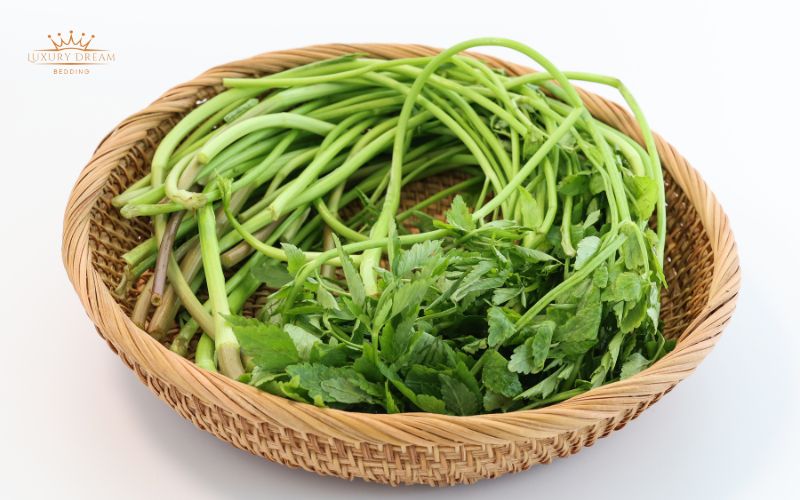
Rau diếp cá, a common vegetable in many dishes, also has a calming effect on the body. It contains apigenin, a flavonoid compound known to soothe the nervous system, helping you sleep more soundly. Additionally, rau diếp cá helps reduce anxiety and stress, further improving sleep quality.
You can incorporate rau diếp cá into salads or use it in soups to take full advantage of its sleep-enhancing benefits.
5. Seaweed
Seaweed is a rich source of Omega-3 DHA (fatty acid), which can reduce nighttime awakenings. Omega-3 helps regulate your biological clock and supports brain function. Seaweed also provides numerous vitamins, minerals, and trace elements that improve overall health, leading to deeper, more stable sleep.
6. Kale
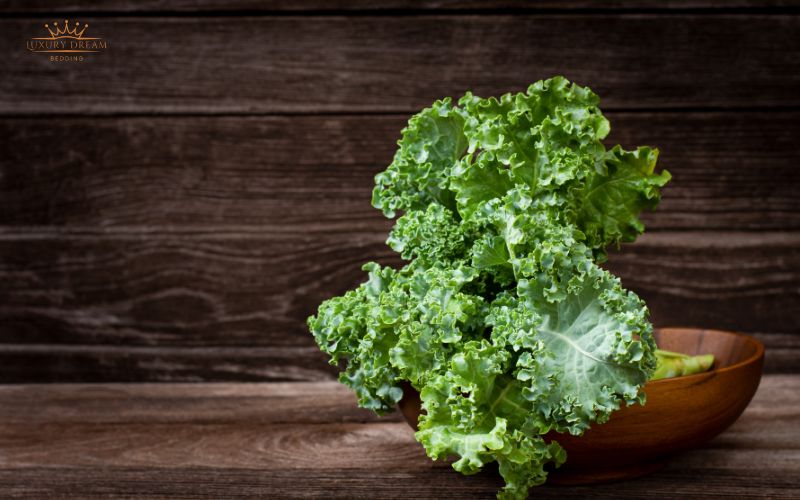
Kale is a green vegetable packed with fiber and vitamins. It helps relax muscles and the nervous system, reduces stress, and makes it easier for your body to fall asleep. With its high nutritional content, kale also supports digestion and metabolic function, contributing to overall health.
7. Artichokes
Artichokes, widely used in both traditional and modern medicine, are known to reduce stress and anxiety, which are key factors in poor sleep. Artichoke tea or soup is an ideal way to relax before bed.
8. Avocados
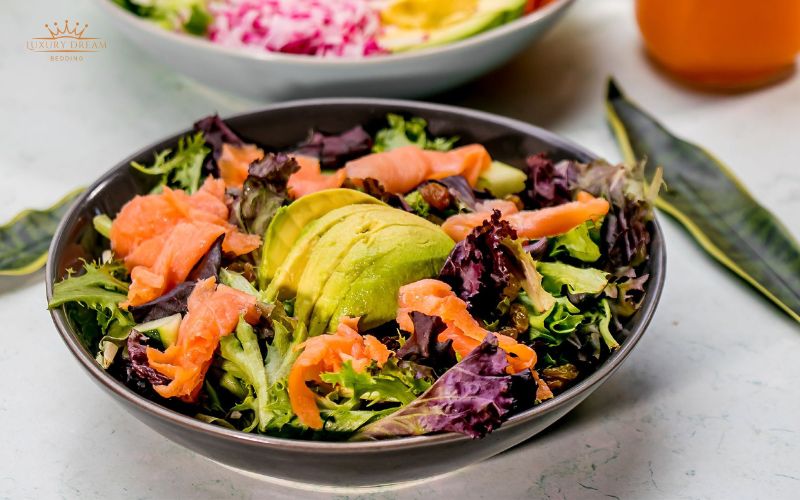
Although avocados contain tyramine, a substance that can stimulate the brain, when used correctly, they can support better sleep. Avocados provide healthy fats and nutrients that help reduce stress and relax the body. They can be used in salads or smoothies.
Tip: Eating avocado in the evening can provide energy for your body while still supporting restful sleep.
9. Cherries
Cherries are an excellent sleep-supporting food as they provide melatonin and tryptophan, which regulate the biological clock and promote sleep. Additionally, cherries are rich in vitamin C, which boosts the immune system and acts as an antioxidant.
10. Chia Seeds
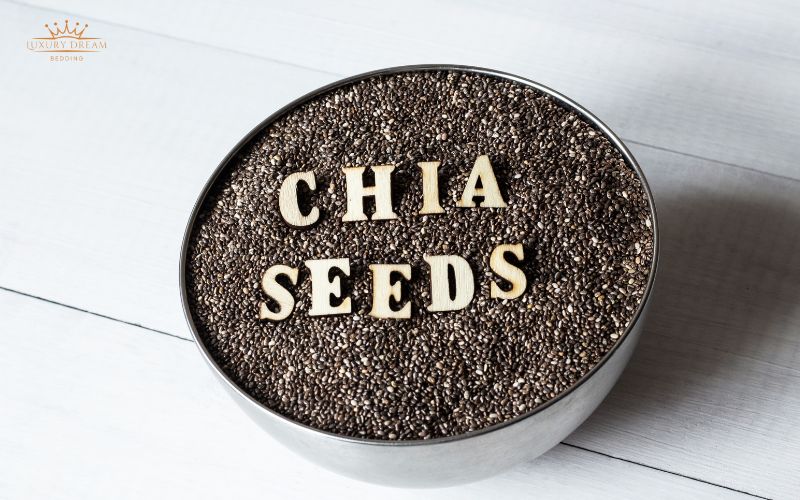
Chia seeds are high in magnesium, which calms the nervous system and stimulates the production of Gamma-aminobutyric acid (GABA), an amino acid that reduces nerve activity. Chia seeds can be added to smoothies, porridge, or salads to help relax the body and improve sleep quality, especially for those dealing with insomnia.
11. Eggs
Eggs are not only a nutritious food but also an excellent sleep aid. They are rich in vitamin D, B6, zinc, and other nutrients that help produce melatonin, the hormone that regulates sleep.
12. Dairy Products
Milk and other dairy products like yogurt and cheese are rich in melatonin and tryptophan—two crucial substances that improve sleep. Additionally, milk contains calcium, which relaxes the body and aids in deep sleep. Drinking a warm glass of milk before bed is a great way to enhance sleep quality.
13. Blueberries and Ginkgo Biloba
Blueberries are rich in antioxidants that protect the body from free radical damage, improving sleep quality. Ginkgo biloba, on the other hand, enhances blood circulation to the brain, supports cognitive function, and promotes sleep.
In addition to incorporating these sleep-enhancing foods into your diet, it is important to maintain healthy lifestyle habits, including getting enough sleep, reducing stress, and engaging in regular exercise. By doing so, you can significantly improve your sleep quality. With these sleep-supporting foods, you can enjoy restful nights and wake up feeling refreshed.
